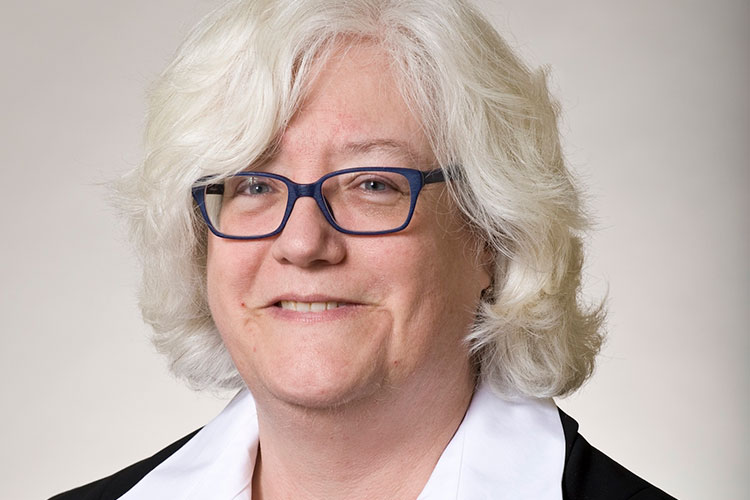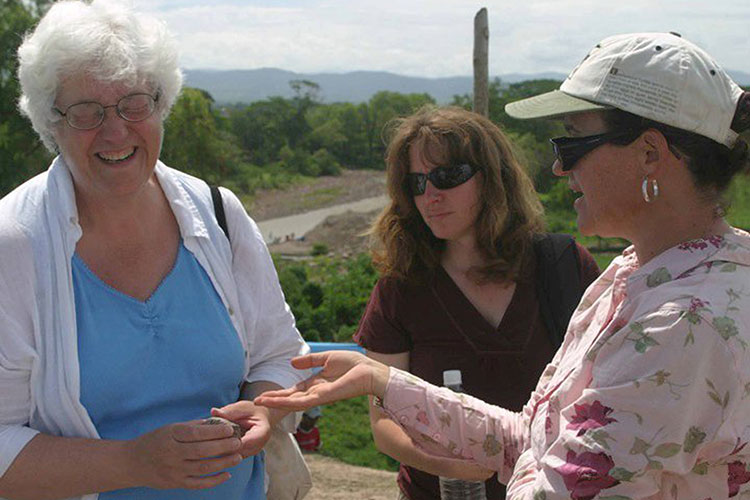Anthropologist Rosemary Joyce Awarded a Distinguished Honorary Doctorate

Rosemary Joyce, an anthropology professor and social archaeologist who has served in several campus leadership positions during her 28 years at UC Berkeley, has received an honorary doctorate from Leiden University in the Netherlands for her “outstanding research into the ancient civilizations of Mesoamerica and Mexico,” according to an announcement from Leiden University’s doctorate board.
“I am really humbled to be honored by Leiden University because this comes at the recommendation of faculties in both social anthropology and archaeology, and also because this honor is based in part on the values I share with Leiden’s emphasis on engaging with contemporary communities to understand how research affects them and can serve them,” Joyce said.
A native of Buffalo, New York, Joyce is the fourth archaeologist since 1835 to be awarded an honorary doctorate by Leiden University. Across all disciplines, other notable recipients of Leiden’s honorary doctorate include Nelson Mandela (1999), E. M. Forster (1954), Winston Churchill (1946) and Charles Darwin (1875).
In announcing the award, Hester Bijl, a professor of math and Leiden’s rector magnificus, its highest-ranking officer, wrote that Joyce is being recognized for her “continuous efforts to involve communities affected by research, evident especially in long-term engagements with museums and local communities in Honduras.”
The award will be conferred on Joyce at a live Feb. 8 ceremony as part of Leiden University’s celebration of its founding in 1575 as the Netherlands’ first university. Joyce has chosen to attend remotely due to the COVID-19 pandemic.
“While that is a disappointment, my colleagues in Leiden are adamant that I will come there in the future, so this is simply a beginning point of celebration,” said Joyce, who will also deliver a dean’s lecture at Leiden that will be hosted by its archaeology faculty.

Joyce is acclaimed for her research on gender and sex.
“I began writing about gender and sex in ancient Mexico and Central America in the late 1980s. At the time, the topic was easily dismissed by scholars working in the region who treated women as a single, biologically-based, natural category,” she said.
“In a series of conference presentations that became influential peer-reviewed journal articles and book chapters, I demonstrated that the Indigenous peoples of this region did not share this gender ideology. Instead, I showed that gender was fluid, multiple, beyond the binary, and that the ideologies of gender linked humans to nonhumans instead of severely dividing humans from other living and even non-living beings,” she added.
This work culminated in her 2001 book Gender and Power in Prehispanic Mesoamerica.
Joyce earned her Ph.D. in anthropology from the University of Illinois-Urbana in 1985, then joined the faculty of Harvard University. In 1994, she joined UC Berkeley’s faculty as an associate professor and served as director of the Phoebe A. Hearst Museum of Anthropology until 1999.
In addition to other honors, she was a Fulbright Senior Scholar at the Universidad de Costa Rica, an Astor Visiting Lecturer at the University of Oxford, and a recipient of a John Simon Guggenheim Memorial Foundation Fellowship.
At UC Berkeley, she has served as chair of anthropology, associate graduate dean and is currently interim director of Global International and Area Studies.
Her most recent books include Painted Pottery from Honduras: Object Itineraries and Lives (2017) and Material Relations: The Marriage Figurines of Prehispanic Honduras (2014).
Her 2020 book, The Future of Nuclear Waste: What Art and Archaeology Can Tell Us About Securing the World’s Most Hazardous Materials, examines plans that would result in the U.S. government constructing an archaeological site on top of buried nuclear waste.
